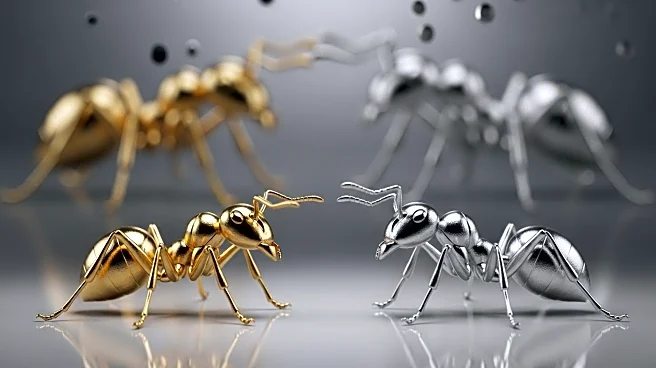What's Happening?
Researchers have discovered that the Iberian harvester ant (Messor ibericus) in southern Europe can clone males of a different species, Messor structor, as part of its reproductive cycle. This phenomenon challenges traditional understanding of species barriers and reproductive biology. The study, published in Nature, found that queen ants produce male clones of M. structor, which then father the worker ants. This discovery was made after observing that some ant populations lacked nearby M. structor colonies, prompting further investigation into their reproductive strategies.
Why It's Important?
This finding has significant implications for the study of evolutionary biology and genetics, as it challenges the established concept of species boundaries. The ability of one species to produce viable offspring of another species suggests a complex genetic mechanism that could reshape our understanding of reproduction and genetic inheritance. This could lead to new insights into genetic engineering and biodiversity conservation, as well as raise questions about the adaptability and evolution of species in changing environments.









